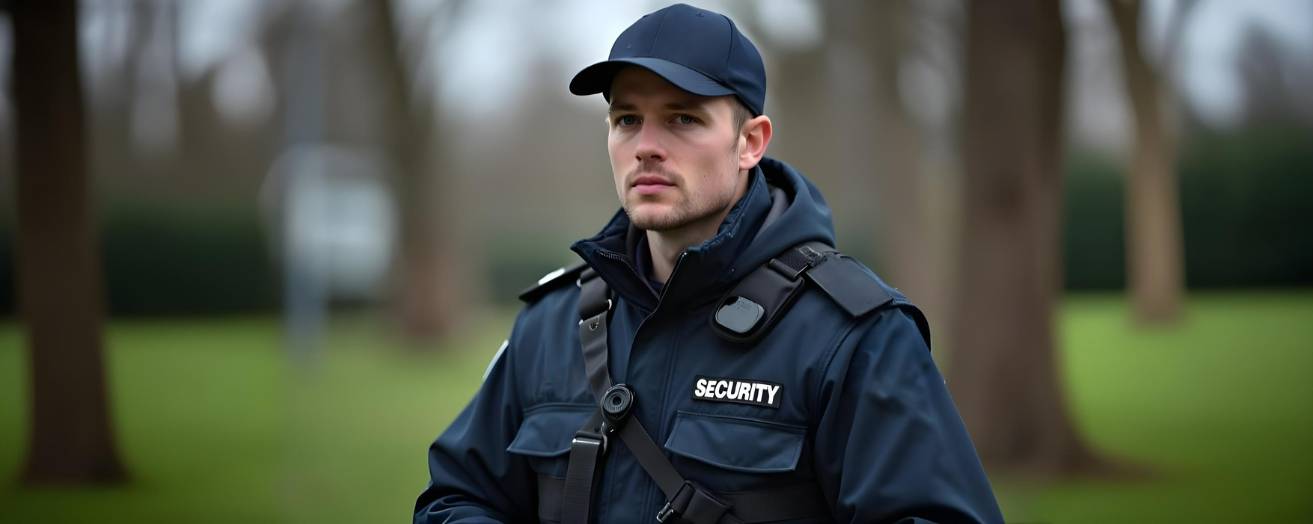There has been a great deal of talk about a ‘race to the bottom’ within the UK security industry over the last decade or so. This has been driven by naive clients constantly demanding the cheapest possible security guarding charge rates, while still expecting some level of quality service. ‘Cheap’ and ‘professional’ never ever go together, despite the promises of well-rehearsed sales representatives during contract tender presentations.
Rogue Operators and Criminal Tactics
This increasing demand for cheap services has driven the growth of rogue security companies. I use the term rogue to include companies that in reality are far more insidious. Hiring security workers who have had zero or dubious mandatory SIA training, paying cash in hand off the books, arranging student visas to import cheap foreign workers, putting up workers in houses of multiple occupancy, and paying rates way below the legal minimum wage are all part of the MO of these companies.
Recommended Read: Security Hiring Challenges

Enforcement Struggles and Regulatory Gaps
The Security Industry Authority is working hard with bodies like the Police, HMRC and Border Force to find and prosecute these companies, but without mandatory business licensing, they close down on Monday and pop up again on Wednesday with a new name and company number.
Stamping out this sort of criminality and malpractice in the industry would seem simple. Just make sure that clients are fully aware of the amount they need to pay to ensure that the security services they want are going to be legally and ethically supplied. But what is that magic charge rate?
GLAA’s Framework as a Model
For some years, a Government organisation called the Gangmasters and Labour Abuse Authority (GLAA) has been publishing a fair charge rate framework covering the purchase of services in the sector they are responsible for, mainly seasonal agricultural workers. This provides crystal clear guidance for employers and clients alike, and red flags are easily raised if security guarding charge rates below the published minimum are offered.
Recently the security industry has obtained its very own fair charge rate framework, and although it has not yet been officially approved by the Security Industry Authority, it has growing support. John Lambert, Chair of the International Professional Security Association, has been campaigning for the adoption of a security industry-dedicated document similar to the GLAA.
Introducing the IPSA 2025 Fair Charge Rate Framework
Recently, after a lot of hard work, the IPSA published their 2025 Security Industry fair charge rate framework. This is a huge step towards industry improvement, and its importance cannot be overstated.
With the new minimum wage for persons over 21 years old, going up to £12.21 per hour from the 1st April, an unenlightened potential client may think that £15 per hour is a perfectly acceptable rate to pay for guarding services. Surely £15 per hour gives at least a pound profit for the security company, right? Let’s have a look at the reality.
Using the IPSA 2025 fair charge rate framework, let’s see how much profit a £15 per hour charge rate leaves for the security company providing the service:
| Cost Item | Cost |
| Minimum Wage | £12.21 |
| Employer’s National Insurance | £1.76 |
| Holiday Pay | £1.47 |
| Sick Pay | 12p |
| Pension Contribution | 33p |
| Apprenticeship Levy | 7p |
| Uniform | 10p |
| SIA Licensing & ACS Costs | 7p |
| BS7858 Vetting | 8p |
| Account Management | 19p |
| Equipment (Phone, patrol recorder) | 17p |
| Premises Costs | 26p |
| Overhead Contribution | 26p |
| Business Insurance | 12p |
| Subtotal (Before Profit) | £17.54 (A rise of 11% or £1.75 per hour over 2024) |
| +10% Profit on Basic Pay | £1.22 |
| Total Charge Rate Needed | £18.76 per hour |
Blimey! That potential client, thinking that £15 per hour was a reasonable amount to pay, is wrong. Very wrong. In fact, by a minimum of at least £2.54 per hour! Any security company that is legal, decent, honest and true will walk away.
It is worth remembering as well that these figures only refer to MINIMUM WAGE operatives. Regardless of what a client may expect for this price, they will be getting the poorest quality licensed security available. For decent calibre professional and experienced security officers, a charge rate of £25 per hour is in no way unreasonable.
Recommended Read: Security Industry Trends For 2025
Illegally Low Rates Are a Warning Sign
Questions must be asked of any security company out there that would accept that contract at £15 per hour, as they can not be doing business legally or ethically, and somewhere a crime is being committed, be it tax evasion, worker exploitation, assisting illegal migration, or fraudulent SIA licence acquisition. Alas, in many cases, it will be most of the above.
The Way Forward
Educate potential clients. Show them the IPSA charge rate framework and make it crystal clear that getting a good deal will still always mean paying a fair amount to ensure the services that they want are legally supplied.
Those companies that are still happy to take on contracts at £11 – £17 per hour? Report them to the SIA, and let the regulator and the courts educate them.
Raise the Standard with GuardPass
Understanding and applying fair security guarding charge rates isn’t just about compliance — it’s about protecting your business, your people, and the industry at large. The IPSA framework sets the benchmark, but tools like GuardPass help you meet it.
From BS7858 vetting to a database of fully screened, licensed professionals, GuardPass ensures you hire ethically and efficiently, without cutting corners.
Ready to hire smarter and stay compliant? Explore GuardPass and start building a security team you can trust.
